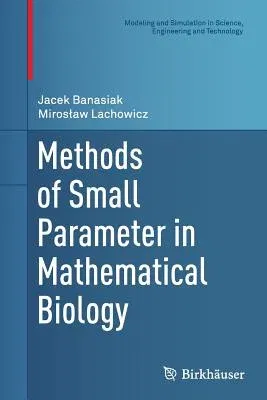This monograph presents new tools for modeling multiscale biological
processes. Natural processes are usually driven by mechanisms widely
differing from each other in the time or space scale at which they
operate and thus should be described by appropriate multiscale models.
However, looking at all such scales simultaneously is often infeasible,
costly, and provides information that is redundant for a particular
application. Hence, there has been a growing interest in providing a
more focused description of multiscale processes by aggregating
variables in a way that is relevant to the purpose at hand and preserves
the salient features of the dynamics. Many ad hoc methods have been
devised, and the aim of this book is to present a systematic way of
deriving the so-called limit equations for such aggregated variables and
ensuring that the coefficients of these equations encapsulate the
relevant information from the discarded levels of description. Since any
approximation is only valid if an estimate of the incurred error is
available, the tools the authors describe allow for proving that the
solutions to the original multiscale family of equations converge to the
solution of the limit equation if the relevant parameter converges to
its critical value. The chapters are arranged according to the
mathematical complexity of the analysis, from systems of ordinary linear
differential equations, through nonlinear ordinary differential
equations, to linear and nonlinear partial differential equations. Many
chapters begin with a survey of mathematical techniques needed for the
analysis. All problems discussed in this book belong to the class of
singularly perturbed problems; that is, problems in which the structure
of the limit equation is significantly different from that of the
multiscale model. Such problems appear in all areas of science and can
be attacked using many techniques. Methods of Small Parameter in
Mathematical Biology will appeal to senior undergraduate and graduate
students in applied and biomathematics, as well as researchers
specializing in differential equations and asymptotic analysis.

